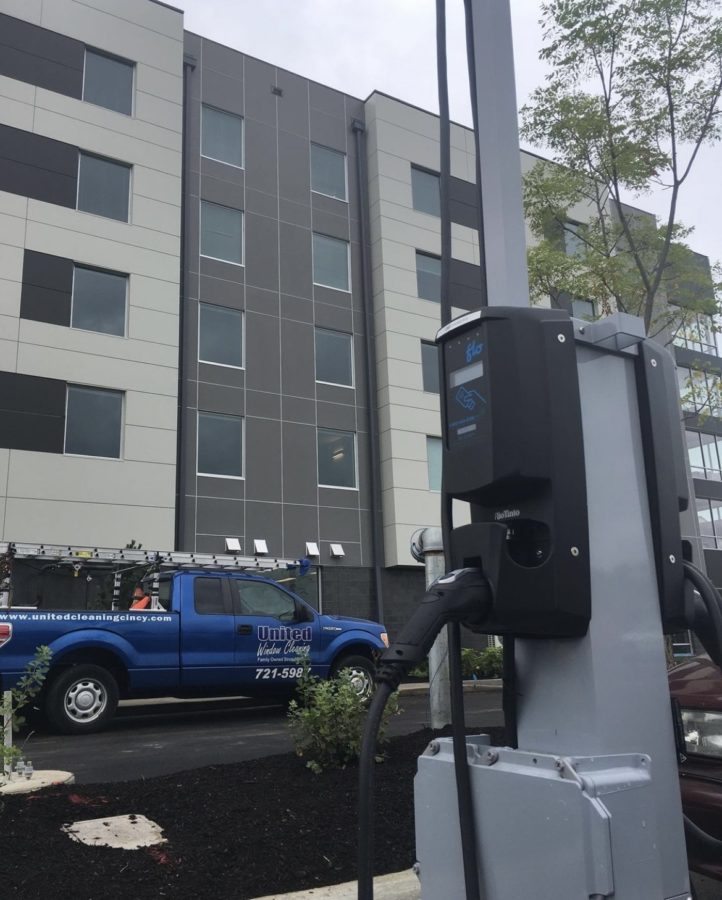Electric vehicles are becoming more mainstream. What is NKU’s response?
NKU is planning to add more electric vehicle charging stations on campus
January 19, 2022
Northern Kentucky University has partnered with Electrada to supply electric car charging stations across campus to accommodate the increased demand for electric/plug in vehicles.
Because electric vehicles do not release tailpipe effusion into the environment, NKU’s goal is for the campus and the community to become a healthier place as more electric vehicles are purchased. Having car charging stations on campus may increase the possibility of faculty, staff and students investing in a more environmentally safe type of transportation.
The CEO of Electrada, Kevin Kushman, speaks on Electrada’s experiences and goals. “We look at big corporations as early adopters for technology, to pull those technologies forward in a risk-mitigated way,” Kushman said. “They demonstrate to the community that the transition to clean mobility is de-risked, and that the broader community should be making similar investments in the decarbonization of transportation.”
Currently on campus, there are two charging stations (with four total charging ports) located in Lot F behind the New Residence Hall. One station (two charging ports) is located in Lot C, and there are future stations being planned for Kenton garage and Lot K according to Tiffany Budd, NKU’s Sustainability Operations Coordinator.
Maria Osbourn, a senior environmental science major at NKU, responded to the news of the electric car charging stations on campus.
“As a student, I find the installation of the electric vehicle charging stations exciting and promising. It shows NKU’s commitment to clean air, innovation and surrounding communities,” Osbourn said. “While there is so much environmental destruction in the world right now, I remember initiatives like this and I feel hope. The EV stations empower me to take part in the fight for a better, livable future.”
Sustainability is a huge part of giving back to the environment and making the environment safe, and sustainability is always improving since the field is so versatile.
Social justice issues are closely linked with sustainability, so improving campus sustainability aligns with NKU’s values of equity, diversity and inclusiveness. Bringing these conversations into classrooms, faculty meetings, student organizations and administrative conversations is a way to bring more voices into the discussion and improve campus sustainability.
“Nothing is infinite, and sustainability in general means balancing resource use with resource replenishment,” Budd said. “Environmental sustainability ensures that all humans get to live in a healthy, resilient, biodiverse and equitable world through the proper use of resources and consideration for the environment.”
NKU’s sustainability strategy is to demonstrate responsible stewardship of natural resources, empower the campus community to enhance the university’s culture of sustainability, increase and strengthen sustainability education, invest in sustainability, increase participation and access to initiatives that promote social and ecological vitality, and expand external partnerships that inform NKU sustainability efforts and strengthen our regional impact.
“NKU is driven to student success, and being good caretakers of the environment through sustainability strategies like this, it helps to create a healthier world,” Budd said.
If you want to learn more or have any concerns, questions or feedback, contact nkusustainability@listserv2.nku.edu.

